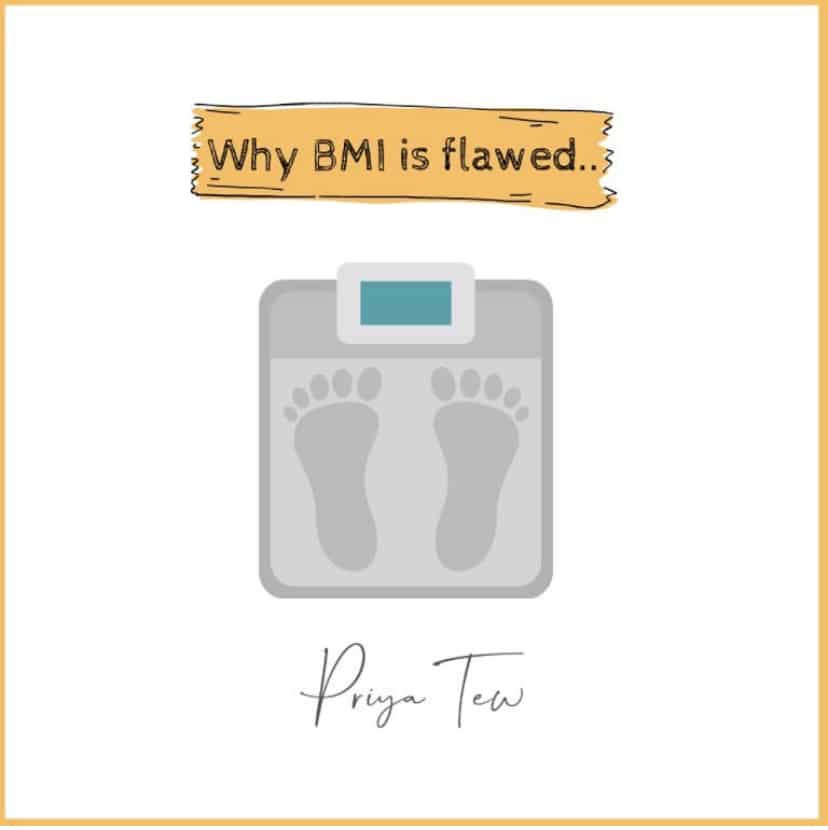BMI, or body mass index, is used to measure body composition and has subsequently been used to measure health, which isn’t accurate for many reasons. However it is a simple measurement to take which is probably why it has become used so much over time. Body mass index or BMI is a measure that uses our height and weight to work out our approximate level of body fat. It has been widely adopted because it is simple, inexpensive and non-invasive. However, despite its wide use BMI is flawed Here is why….
- BMI does not account for muscle mass
- BMI does not give a good indication of fat mass or bone density
- BMI does not tell anything about body composition
- BMI does not account for gender or race differences
- Overall – BMI (or weight) does not define health

✅ Too simple: when the BMI formula was first devised there were no calculators, computers or electronic devices. It was developed as a very simple equation by a Belgian mathematician, astronomer and statistician called Adolphe Quetelet. The issue here is that BMI does not take into account factors that play important roles in determining what a healthy weight and body fat % is for someone. These factors include : activity level, body type, age, gender and ethnicity. By the way some nutrition pop quiz info for you…. this equation was later renamed BMI by Ancel Keys in 1972. You may recognise his name from some other key nutrition studies including the Seven Countries Study.
✅ Body composition : A major problem with BMI is that it cannot distinguish between muscle, fat and fluid mass. This poses several issues, one being that muscle is denser than fat, so someone who is more muscular may technically have a high BMI and be categorised as overweight even if they are not.
✅ Weight does not determine health: BMI is simply a categorisation of weight and NOT health because remember our weight does not necessarily determine our health. Our health is determined by many factors including : our nutrition, activity levels, sleep patterns and mental health. Whilst we sometimes need to use BMI as a guide it needs to be used as part of the whole picture and not just on its own.
Any calculation that assigns one number to a person will not be perfect. Humans are too complex to be described by a single figure. Healthy bodies grow in different shapes and sizes something which BMI does not account for. Instead of focusing on an arbitrary number such as BMI and hinging our health to our weight we need to focus on developing the behaviours that promote better health. Eating well, drinking enough fluid, sleeping enough, resting when our bodies need it, moving in ways our bodies and minds enjoy, having a good work-life balance are all part of the picture.
If you are working on recovery from an eating disorder and need to increase your weight then BMI can give an indication of where you may need to aim for. This can therefore be helpful, however it is just one part of recovery and a healthy BMI does not mean you are recovered!